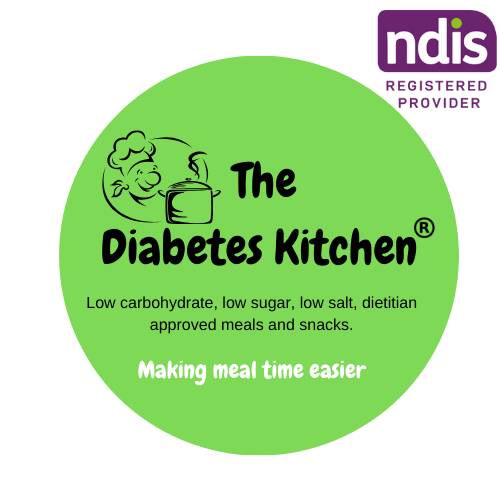Lactose intolerance is a prevalent gastrointestinal disorder that impacts millions of individuals across the globe. It is distinguished by the indigestibility of lactose, a substance present in milk and dairy products, by the body. This intolerance is caused by a lack of lactase, an enzyme that is critical for the enzymatic conversion of lactose into more easily assimilated carbohydrates by the body.
Management of lactose intolerance is the norm; cures are uncommon. The purpose of treatment is to mitigate symptoms so that individuals can consume dairy products or adhere to a lactose-free diet without experiencing any discomfort. Dietary modifications, probiotics, beverages, medications, and adjustments to one's lifestyle are the principal approaches employed in the management of lactose intolerance. A synopsis of these treatment alternatives follows:
1. Dietary Adjustments:
The prevailing strategy entails refraining from consuming foods and beverages that contain lactose. Individuals who are lactose intolerance should exercise caution when reading food labels and remain cognizant of concealed lactose sources.
Alternatives Low in Lactose A variety of dairy products are available; for instance, yogurt, cheese, and milk are all lactose-free. In order to produce these items, lactase enzymes are added to degrade lactose.
Plant-Based Milk: A variety of non-dairy milk alternatives, including oat milk, almond milk, soy milk, and rice milk, are lactose-free by nature and can be employed in place of conventional cow's milk.
Certain individuals who have a lactose intolerance may be able to consume hard cheeses such as Parmesan, Swiss, and cheddar due to the considerably reduced lactose content compared to milk.
Secondly, Lactase Supplements:
Lactase Enzyme Supplements: Tablets or liquid over-the-counter lactase enzyme supplements may be consumed prior to the ingestion of dairy products. These dietary supplements replenish the enzyme that is vital for the digestion of lactose.
For many individuals, it has been found that taking lactase supplements 15 to 30 minutes prior to consuming foods or beverages containing lactose can be an effective timing strategy for symptom prevention.
Probiotics (3):
Probiotic Supplements: Specific probiotics, including Lactobacillus acidophilus, have the potential to alleviate symptoms and enhance lactose digestion in certain individuals. Probiotics facilitate the digestion of lactose by introducing beneficial microorganisms into the gastrointestinal tract.
Before using probiotics as a treatment, it is prudent to consult a healthcare professional due to the fact that their efficacy can differ from individual to individual.
Medications (4):
Prescription Medications: When dietary modifications and lactase supplements prove to be ineffective, medical professionals may opt to prescribe medications containing lactase enzymes for the purpose of facilitating lactose digestion.
Consult a Healthcare Provider: Prior to beginning prescription treatments, it is vital to consult a healthcare provider regarding medication options and potential adverse effects.
5. Lifestyle Modifications:
Portion Control: Certain individuals who are lactose intolerant may be able to tolerate negligible quantities of lactose without experiencing any adverse effects. In such situations, portion control may be beneficial.
Implementing a gradual introduction strategy for lactose-containing foods into one's diet may facilitate gradual adaptation to lactose for certain individuals.
Meal Planning: A balanced diet devoid of lactose can be ensured through careful meal planning. It can be advantageous to consult with a registered dietitian in order to develop an appropriate meal plan.
It is crucial to acknowledge that the efficacy of these treatments may differ among individuals. Certain individuals who have lactose intolerance may exhibit no symptoms when consuming minor quantities of lactose; conversely, others may require absolute abstinence.
It is recommended to establish a close collaboration with a registered dietitian or healthcare provider in order to customize a management plan that aligns with your specific requirements and dietary inclinations. Furthermore, in the event that one has suspicions of developing lactose intolerance, it is critical to consult a healthcare professional for an accurate diagnosis prior to commencing any treatment.
Types of Lactose Intolerance Friendly Foods
Ladder-Friendly Dairy Products: A variety of supermarkets provide cream, cheese, milk, and yogurt that are free from lactose. These items undergo a process to degrade lactose, thereby facilitating digestion.
A multitude of plant-based milk alternatives are readily accessible, including but not limited to oat milk, soy milk, almond milk, and coconut milk. These alternatives are lactose-free by nature and may be substituted for conventional cow's milk.
Lactose-Free Cheese: Certain specialty retailers carry lactose-free cheese, providing individuals with lactose intolerance a viable substitute for regular cheese.
Activated Probiotic Cultures in Specific Types of Yogurt: Activated probiotic cultures aid in the digestion of lactose. Look for the label reading "live and active cultures" on yogurts. Greek yogurt's reduced lactose content may contribute to its potential for improved tolerability.
Hard and Aged Cheeses: As a result of the fermentation process, hard and aged cheeses such as cheddar, Parmesan, and Swiss contain less lactose. With moderation, many lactose-intolerant individuals can tolerate these cheeses.
Supplementary Lactase Lactase is the digestive enzyme required to process lactose. In order to facilitate digestion, some individuals who are lactose intolerance may opt to use over-the-counter lactase supplements prior to consuming dairy products.
Despite the fact that butter contains trace quantities of lactose, individuals with lactose intolerance frequently find it to be tolerable due to its low lactose content. However, some people may still require a reduced butter consumption.
Numerous flavors of lactose-free ice cream are available; it is a delectable substitute for conventional ice cream.
Sorbet, a dairy-free frozen delicacy, is composed of water, sugar, and fruit puree or juice. It is lactose-free by nature and is available in an assortment of varieties.
Cheese Alternatives Derived From Plants: Individuals who are lactose intolerant may substitute conventional cheese with plant-based cheese alternatives composed of almonds, soy, or tapioca.
Non-Dairy Creamers: In place of traditional cream, non-dairy creamers such as almond milk creamer and coconut creamer can be used in coffee and tea.
Fresh fruits and vegetables are nutritious and wholesome choices because they are inherently devoid of lactose.
Meat, poultry, and fish that have not been processed are devoid of lactose and may be incorporated into one's dietary regimen.
Grains and Legumes: Lactose-free foods such as rice, pasta, lentils, and legumes can be utilized in a wide range of dishes.
Nuts and Seeds: Nuts and seeds, such as chia seeds, almonds, and peanuts, do not contain lactose and can be incorporated into meals or consumed as snacks.
It is critical to carefully examine food labels, as certain processed foods may conceal lactose sources, including whey or milk solids. It is prudent to consult a healthcare provider or registered dietitian if you have severe lactose intolerance to ensure that you are meeting your nutritional needs, particularly for calcium and vitamin D, which are frequently found in dairy products. They are able to offer individualized consultations regarding the dietary management of lactose intolerance.





